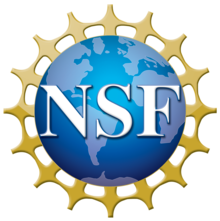Wikipedia:Meetup/AfroCROWD/ LIU NSF REU Translateathon
Welcome to the Long Island University National Science Foundation Research Experience for Undergraduates Wikipedia Translate-a-thon with AfroCROWD and Wikimedia NYC![edit]
Sign up[edit]




Long Island University and the National Science Foundation Research Experiences for Undergraduates (NSF REU) is hosting a Wikipedia Translatathon with AfroCROWD and Wikimedia NYC! At this event, students, professors, and LIU faculty will translate Wikipedia articles among any languages which attendees understand. Languages being explored among the students include:
- Arabic
- German
- Gujarati
- Hebrew
- Malayalam
- Polish
- Spanish
- Yiddish
- African American English
New York City has a large immigrant population and great diversity of speakers of various languages. We are pleased to take advantage of this wealth of diversity for our second translate-a-thon at Long Island University.
Let's Get started:
- Please let volunteers know if you need a computer / wifi
- Please sign up for your own Wikipedia user account: go to here to create your accounts (please don't avoid your real name, and please choose a name and password you will remember)
- Please have sign up for the event on the Dashboard here: https://outreachdashboard.wmflabs.org/courses/AfroCROWD_,_Long_Island_University/The_LIU_NSF_REU_Wikipedia_Translatathon_with_AfroCROWD?enroll=xqovpcne
- Do you have a list of books or references assigned? Please let a volunteer know if you need help with citations.
- Stick around for refreshments and don't forget to ask for help if you have any questions!
List of articles to be improved[edit]
Useful / Advanced support[edit]
The best way to get started at this event is to talk in person with one of the trainers at the event. As advanced preparation, anyone might select a Wikipedia article which interests them and which they might like to translate at the event. The best way to learn Wikipedia's method for translation is to come to the event, listen to the presentation, then ask for assistance at your computer if you need it.
If you want to read technical documentation on your own then click "show" to the right and read the following guides.
click "show" to the right
|
|---|
Suppose that one has a Wikipedia article in one language, and wants to see the other languages in which that Wikipedia article exists. Here is the process:
These are the most common methods: 1. Use Wikipedia Gap Finder (you can customize your search): http://recommend.wmflabs.org/#Recommend 2. Using the English Wikipedia, find an article that interests you. Then, look to the left of the page, in the gray bar beneath the Wikipedia globe. At the tail end of that list of links, you'll see "Languages," and links to all of the languages that also have that article. Languages are spelled in that language's alphabet or phonemes. For example, you won't see "Japanese" or "French," you'll see "日本語" and "Français". Is the language you're studying listed? If so, click the language to see the same article in that language. You can compare the two articles to get a sense of what one has that the other does not. If not, that means there's no corresponding article in that language. 3. Head to the Wikipedia in the language you are studying. In the search bar, type: WP:GA (this will also work with Wikipedias using non-Roman alphabets). You'll be taken to a list of "Good Articles" on that language's Wikipedia, the best articles it has to offer. (You may need to find the page that lists them, if it's separate). Find a Good Article on your target language's Wikipedia. Check the bar on the side to see if there is a corresponding article in English. If there isn't, great! You can translate the article into English, and contribute it to the English Wikipedia. Sometimes, the article exists, but is very short. That's OK, too. However, if both languages have well-developed pages on the topic, you will want to find another article. It can be very challenging to add content to an already-developed article.
You can access the tool from Special:ContentTranslation from Wikipedia in any language. Accessing it for the first time will also enable the tool for that wiki.
|
Keyboard Localization[edit]
For best practices when it comes to working with Latin-Extended and non-Latin character sets, see our Keyboard Optimization Guide.
Thanks[edit]
Thanks to the Wikimedia Community organizations and projects which are supporting this event!
-
Wikimedia New York City volunteers
Sign up[edit]
Attendees[edit]
- 24.38.3.28 (talk) 15:23, 18 June 2019 (UTC)

